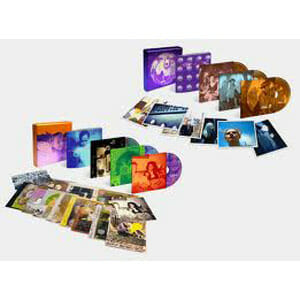Smashing Pumpkins: Gish and Siamese Dream Remastered Deluxe Editions

It’s the early ‘90s — a time where Nirvana’s Nevermind has struck fear into the hearts of arena giants of the ‘80s and left record executives scouring the dingiest clubs of the U.S. to try to hop on this “grunge train.” Somewhere in Chicago, Billy Corgan and his Smashing Pumpkins have already recorded Gish, a solid-but-scatterbrained debut album, and the band is not-so-quietly flipping the bird to indie music and everything for which it stands.
“We start (Siamese Dream) with ‘Cherub Rock,’ which is basically my big F.U. to the indie world,” Corgan said in Siamese Dream’s re-released liner notes. “If you read the lyrics, that was basically me railing against the hipper-than-thou NYC indie mentality.”
And so Corgan, the alternative artist he was at the time, was left rallying against pretty much everyone. But it’s this attitude that made him such a unique character in a scene that was quickly on the rise, ranging from his questionable clothing taste, his incredibly revealing lyrics and his skillful-yet-artfully atonal guitar solos. But with a fresh look at his band’s first two albums, Gish and Siamese Dream it’s hard to see how anyone — including Nirvana’s first label, Sub Pop, who initially rejected the Pumpkins — didn’t like his approach to begin with.
As the band’s opening statement, Gish can be confusing. For legions of fans that were introduced by singles like “Disarm” or “Today” that appeared on the band’s huge-label debut, Siamese Dream, the album is surprisingly hookless. Yeah, it features qualities that would launch the band to superstardom — Corgan’s love-it-or-hate-it snarl, mixes with an over-stacked amount of guitars and Jimmy Chamberlin’s jazz-inspired drum parts — but it’s obvious the group hasn’t really arrived yet on Gish. Instead, Corgan says it best, admitting that “there really aren’t a lot of great songs (on Gish), it’s really more of a dynamic statement. I wouldn’t say there are many great songs but there are a lot of great ideas that are taking chances.”
-

-

-

-

-

-

-

-

-

-

-

-

-

-

-

-

-

-

-

-

-

-

-

-

-

-

-

-

-

-

-

-

-

-

-

-

-

-

-

-








































